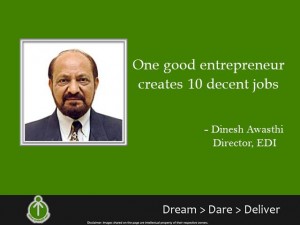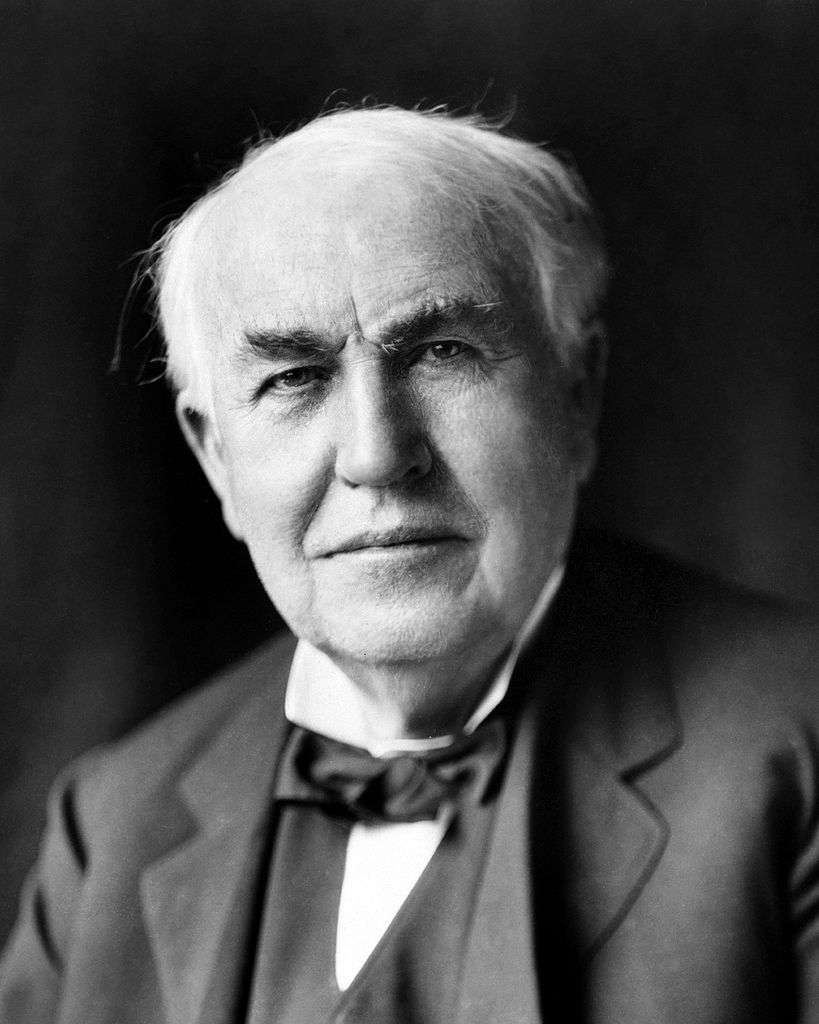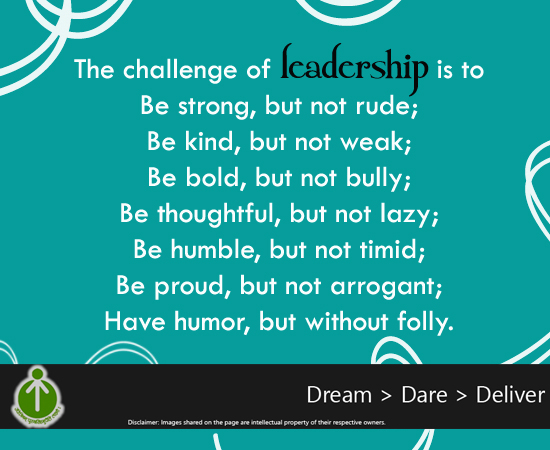Modi says Make In India, but even thalis are from China
Even as India’s business elite gathered here on Thursday to pledge their support for Prime Minister Narendra Modi’s ambitious ‘Make in India’ manufacturing campaign, Hari Ballabh lost his job to the Chinese.
For years, the small factory Ballabh worked at flattened steel into sheets that were cut into circles and passed to adjacent factories, which pressed these into household utensils. “A year ago, the market was flooded by Chinese steel, which was pre-cut in standard sizes for katoris (bowls) and thalis (plates),” says Anil Singhal, a steel trader. He added the Chinese products were cheaper and of better quality. Wazirpur’s pressing units now prefer to import from China, rather than buy from an adjacent plant.”
“Our plant is closing tomorrow. The owner has told us to collect our dues,” said Ballabh, who arrived in Delhi 15 years ago to cold-roll steel in Wazirpur’s cluster of metal factories. “A month before Diwali, 70 of us will lose our jobs.”
The PM’s ‘Make in India’ initiative urges Indian and international companies to invest in 25 priority sectors ranging from automobiles to thermal power. Yet, the unravelling of industrial sites such as Wazirpur illustrates the enormity of the challenge faced by the country’s manufacturing sector.
While big-ticket investments are much needed, micro-enterprises, too, are vital. In 2010, micro-enterprises accounted for 79 per cent of non-farm employment in India, suggesting small-scale enterprises would continue to provide the majority of employment in the near future.
Today, many of Wazirpur’s manufacturers have become traders, a story repeated across sectors as diverse as thalis, toys and telecommunication equipment. “The Make in India initiative makes sense, but it will need trained workers,” said Ballabh, adding he didn’t have the skills to work in a highly automated plant. “The Chinese stuff is automated; the sheet is of uniform thickness. A lot of our work is still done by hand.”
Producing a trained workforce, however, is hard work. Of India’s overall workforce, 70 per cent is literate; of this 70 per cent, 25 per cent drops out at the primary level, according to the 12th Plan document published by the Planning Commission. Only 20 per cent of Indian firms provide on-job training, according to World Bank research.
To train India’s burgeoning youth, the government has announced a skills policy. But many, like the steelworkers of Wazirpur, say poverty makes it difficult for them to support their children through programmes offered by Indian technical institutes. “If I don’t have a job,” Ballabh said, “How will I send my child to school?”
If Chinese products are swamping Indian markets, Indian businessmen appear to be looking for greener pastures. On Thursday, Modi said he was pained that Indian businessmen were increasingly looking to invest abroad. No businessman should feel the compulsion to leave the country, he said.
Entrepreneurs, however, say they are unsure when the many obstacles in India will be cleared.
In 2003, Umesh Menon, a 43-year-old professor at the Entrepreneurship Development Institute of India in Ahmedabad and a consultant with the United Nations Industrial Development Organization, decided to try his luck at starting a business of his own. “I had always told my students India was the best place to invest. But when I started, I had a quick reality check,” he said. “I wanted to start a scalable business, but in India, scaling up attracted higher taxes, more inspections and more problems.”
Instead, Menon and his partners invested $50,000 in a cold-storage business in Uganda. “In 24 hours, they had registered my business and given me a welcome kit, with my clearances, licences, tax number and a driving licence, too,” he said. “In India, $50,000 won’t even get you through the door.”
In two years, Menon had acquired 10,000 acres to start an agriculture business. Along with his partners, he also set up a bakery. In 2010, he moved to Mozambique, where he set up the country’s first private hospital, along with an Indian partner.
“In India, the government only helps the big guys,” he said. “We court foreign investors, but we forget our own people, who have nowhere to go.”
He said the new government’s emphasis on manufacturing was welcome, but fell short of concrete policy changes. “I’m encouraged by all the speeches,” he said. “But we need more action on the ground.”
What’s in a name? A lot.
A name can make and add value to your company’s reputation. Never be fooled by the saying, ’What’s in a name?’ A company name speaks a lot about your company.
There are a lot of things you need to keep in mind while naming your company.
Let’s find out:
1. Be clear about your vision & mission:
You should have a clear picture about what your company is all about. Be clear about the kind of service you would be providing or the kind of product you would be selling. Once done, you can move on to thinking relevant names that will fit best and highlight your work area.
2. Start generating:
Sit down with a piece of paper and start jotting down all the names that cross your mind. Don’t do much thinking, the names might be weird, funny and senseless, but just write them down.
3. Involve less people:
We often tend to ask for suggestions when confused. But when such important decisions are to be taken, involve only a few people who can really be helpful. More people mean more suggestions, which will lead to more changes, more confusions and dissatisfactory results.
4. Get creative:
If the world behaves normal, you should behave crazy to stand out. Don’t finalize on plain, boring names. Get creative. It is important to carve out your niche by displaying your uniqueness. Don’t think out of the box, think that the box has been destroyed and you have no option but to live without the box.
5. Avoid including City in your company name:
Having a city mentioned in the company name might be a bad idea. NEVER have them. Why do you think Kentucky Fried Chicken is now KFC?
KFC lost many potential customers because they thought that as the name says ‘Kentucky’, it might be present just in the city of Kentucky and so is of no use to them. When the company expanded and faced this major problem, they planned to call it KFC instead to keep doubts at bay.
6. Understandability:
My company name? It’s Ena. Did not understand? Well, that’s the point. A name that even your target audience doesn’t understand is a blunder. The name should give a brief idea about company or atleast it should be of relevance to the kind of services you provide. If it is too complex and puzzling, it will remain a mystery to your customers. This is especially true if you are reaching out to a mass audience.
If you think we missed out on something, do add to the points. Your views are always welcome.
[Top]Ways to stay inspired
1. Every morning when you wake up, drink a glass of water to have a fresh start.
2. Exercise to boost up your energy level. It keeps you stress free and happy all day.
3. Make a To-Do list. Following a plan keeps you organized throughout the day.
4. Clean up your working area. A tidy desk gives you inspiration and energy and lets you concentrate more on work. Also helps you deliver quality work.
5. Brainstorming opens up your mind and gives way to new ideas. You might have brilliant ideas inside your head but if you won’t put them across, you will end up being nowhere.
6. Do research online on a topic that interests you. Watch tutorials, read blogs and stay updated about the latest trend.
7. Don’t forget the 50/10 rule. Work for 50 minutes, rest for 10.
8. Reading on a daily basis increases knowledge. Keep reading and stay inspired.
9. End your day with self-evaluation. Think about all your achievements and mistakes. Analyze how you can make tomorrow a better one.
10. Rest is important whenever time permits. It keeps you energetic to do things you like.
11. Expressing gratitude keeps you and everyone around you happy. Say ‘Thank You’ more often and at the end of the day, think about good things that happened to you.
12. Last but not the least, do things that make you happy. Relax and spend some time with your family and yourself. Do things that you really enjoy.
Share your ways of staying inspired all day.
[Top]How successful people define success
Success seems to be connected with action. Successful people keep moving. They make mistakes, but they don’t quit. We found some very successful people having their own definition of success. Find out:
1. Arianna Huffington – Founder of Huffington Post
Huffington says that while we tend to think of success along two metrics, namely money and power, we need to add a third. “To live the lives we truly want and deserve, and not just the lives we settle for, we need a Third Metric,” she says, “a third measure of success that goes beyond the two metrics of money and power, and consists of four pillars: well-being, wisdom, wonder, and giving.” Together, those factors help you take care of your psychological life and truly be successful.”
2. John Wooden – Legendary Basketball Coach
With 620 victories and 10 national titles, Wooden is the winningest coach in college basketball history. But his definition is more about competing with yourself than the other guy: “Success is peace of mind, which is a direct result of self-satisfaction in knowing you did your best to become the best you are capable of becoming,” he said.
3. Tony Hsieh – Zappos CEO
“Your personal core values define who you are and a company’s core values ultimately define the company’s character and brand,” Hsieh writes in “Delivering Happiness,” his memoir about building Zappos.” For individuals, character is destiny,” he says. “For organizations, culture is destiny.”
4. Maya Angelou – Acclaimed Author
The late, great poet laureate, who passed away at 86, left behind stacks of books and oodles of aphorisms. Her take on success is among the best: “Success is liking yourself, liking what you do, and liking how you do it.”
5. Winston Churchill – British Politician
At the prime of his political career from 1929 to 1939, Churchill was kept out of office, in a period historians call “the wilderness.” Yet he stayed publically active, and in 1939, the then Prime Minister asked him to serve as First Lord of the Admiralty as Hitler’s Germany rose. We can see how his definition of success arose from those frustrating years: “Success is going from failure to failure without losing enthusiasm,” Churchill said.
6. Richard Branson – Founder of Virgin Group
Though Sir Richard Branson is worth some $5 billion, the Virgin founder equates success with being fully immersed in your work. “My definition of success?” he asked himself on Virgin’s blog. “The more you’re actively and practically engaged, the more successful you will feel.”
7. Thomas Edison – Inventor of Light Bulb
Edison, holder of over 1,000 patents had an insane work ethic. He was known to put in 72 hours at a time. So naturally, his definition of success is equally ambitious: “Success is 1% inspiration, 99% perspiration.”
8. Stephen Covey – Popular Author
Covey became a massive success and a part of popular culture with his 1989 book “The Seven Habits of Highly Effective People,” which has sold over 25 million copies. Yet for Covey, success is categorically individual. “If you carefully consider what you want to be said of you in the funeral experience, you will find your definition of success.”
Everyone has their own different definition of ‘success’. What’s yours?
Comment and share your views.
[Top]
Being a leader
Good leadership starts with good communication.
Are you looking forward to being a leader? Are you aware about traits of a leader?
We have compiled some qualities that makes one a good leader.
1. Honest and trustworthy-
A leader is someone who others follow, good or bad. If you show your honest side to the team and stick to it, your team is sure to follow the suit. The team and everybody associated with you, believes you, so always be trustworthy and go by the ethics.
2. Confidence-
Inhale confidence, exhale doubt!
A man of confidence is always looked up to. Every business faces panicky situation, it’s on you how you take it. Always keep the calm and be confident to overcome the worst of situations. This will help the team to do their best as well and follow the leader.
3. Sense of Humor-
Why so serious? Laughing at mistakes always helps. If your team commits an error, getting angry and handling the situation seriously will only worsen things. How about a laugh instead? Give your team a friendly environment at workplace which will open them up and help work become more comfortable. Crack a joke or two and see your team brighten up.
4. Communication-
Your words should be simple and crystal clear, easy enough for your team to understand the requirement. If your team is not working up to your expectations, there possibly might be a communication fault at your end. Keep a check. Being a clear communicator is a trait of a successful leader.
5. Everything but rude and arrogant | A team builder-
A team loves their leader, but hates their boss. Boss says, “Go” but a leader says, “Let’s go.” Always keep in mind that a leader should never be rude and arrogant for having the top seat of the company. Instead, a leader should share the same seat as his team. Never make wrong use of your position or strength.
6. Work delegation-
Delegating the work is a sign of a good leader and a strong team. Keep the belief that your team is qualified enough to handle the important tasks. Delegating tasks to the appropriate departments is one of the most important skills you can develop as your business grows. And with growth comes lot of responsibilities which can only be fulfilled once delegated.
7. Has a vision and passion-
What are you leading? What are your goals? Your vision should be clear. A leader must very well know the hierarchy of his progress and a graph that shows where he is now and where he is willing to reach. The passion to achieve your dream always shows through your hard-work and dedication. Your team is sure to follow you if you are true to your work.
[Top]
The Speaking Tree – Parents’ Attachment To Children
Children are victims of the intense attachment exhibited by their parents. The love that parents bear for their children has metamorphosed into a dreadful form of attachment. This is happening universally because of the selfish trait in parents. The parental attachment to their beloved ones has turned into a deadly virus now sweeping the entire world. Few can claim to be free from the parents’ compulsive attachment to their children. However well-meaning they may be, their attachment turns the parent-child relationship sour and destructive.
Constant confrontation between parents and children invariably ends in separation, causing families trauma. The parents being innocent have no clue of the effects accruing from what they claim as love and care for their dear ones. Blissfully unaware of consequences, they dote on their beloved ones.
Parents’ attachment to their children manifests in two distinct ways:
1. Opulent parents pamper their children by showering money and ap pliances, amenities and facilities limitlessly upon them. The young are thus saturated with luxuries, only to lose their joy.
2. Another class of parents manifest their attachment through possessiveness towards their children. They virtually pester them with constant instructions and directions. They pound them with dos and don’ts, doctrines and dogmas. And their directives in variably fall short of reason or judgment.
In the first manifestation, the parents indiscriminately let loose money and sensual objects of all sorts upon the kids without restriction. The pampering starts with toys, tricycles and bicycles, later with Ferrari’s, yachts, jets and the works. Through indulgence in luxuries, children lose direction and purpose in life. It corrodes and ruins their lives. Neither parents nor kids anticipate the negative effects of such indulgence, that it could lead to a state when one loses the pleasure and joy derived from sense objects. And then one develops boredom which could drive one to commit serious blunders, even suicide. Nevertheless, well-meaning parents continue to pamper their children with sensual luxuries not realizing the impending damage to them.
With regards to the second manifestation, parents’ possessiveness fixes their kids in an iron casket. They are shackled by forceful directions and instructions. And when the parents constantly dictate their doctrines and dogmas to kids, they can take no more and buckle under the pressure. Then one of two dreadful consequences follows. Children become a `vegetable’ or a rebel! In the first case the kid turns inert and inactive, hardly responding to the external world. The kid reaches this state if his nature is passive and submissive and succumbs to the continuous on slaughts of his parents’ dictations. If, however, the kid is vocal and aggressive, he becomes a rebel. He would argue, swear, counter the unsolicited advices showered upon him. He could even turn violent, or leave home.
In either case, oppressive attachment of parents towards their children is a source of trauma to children even though such parents are well-wishing, well-meaning, caring parents! Parents ought to realise the blunder that their love and care lacks the support of a strong intellect. And their rigid controls flow from their emotional attachment rather than a discerning intellect. They must visualize the damage done and the dire necessity of developing the intellect in themselves and their children.
From the newly released book, The Holocaust of Attachment.
(Source : The Speaking Tree)
Famous Failures
“Failure is simply the opportunity to begin again, this time more intelligently!”
If you haven’t failed, you haven’t learned at all.
Here are some famous failures to inspire you to take failure positively:
1. Albert Einstein
When Einstein was young his parents thought he was mentally retarded. His grades in school were so poor that a teacher asked him to quit, saying, “Einstein, you will never amount to anything!” Also he didn’t speak until he turned 4 and didn’t read until he was 7.
We know him as the theoretical physicist widely regarded as the most important Scientist of the 20th century. He was awarded the 1921 Nobel Prize for Physics for his explanation of the photoelectric effect in 1905 and “for his services to Theoretical Physics”.
2. Walt Disney
Disney started his own business from his home garage and his very first cartoon production went bankrupt. During his first press conference, a newspaper editor ridiculed Walt Disney because he had no good ideas for film production.
Disney was an American film producer, director, screenwriter, voice actor, and animator. One of the most well-known motion picture producers in the world, Disney founded a production company. The corporation, now known as ‘The Walt Disney company’, makes average revenue of US $30 billion annually.
3. J.K. Rowling
At one point in her life, Rowling was nearly penniless, depressed, divorced and had to raise her child on her own. While writing the manuscript of Harry Potter, she was on welfare. Adding to that, 12 publishers rejected the manuscript.
She created Harry Potter, a global brand estimated to be worth $15 billion today.
4. Steve Jobs
At 30 he was left devastated and depressed after being unceremoniously removed from the company he started, Apple, after a power struggle with the Board Of Directors in 1985. Later, he acquired the computer graphics division of Lucasfilm, which allowed him to regain the funds needed to regain control of Apple.
An American entrepreneur and inventor, he is best known as the Co-founder, Chairman, and CEO of Apple Inc. Through Apple, he was widely recognized as a charismatic pioneer of the personal computer revolution and for his influential career in the computer and consumer electronics fields, transforming “one industry after another, from computers and smartphones to music and movies.” Jobs also Co-founded and served as Chief Executive of Pixar Animation Studios; he became a member of the Board Of Directors of The Walt Disney Company in 2006, when Disney acquired Pixar.
5. Michael Jordan
He was cut from his high school basketball team. Later became the greatest basketball player in history. He never let failure stop him.
Quoted by Jordan, “I have missed more than 9,000 shots in my career. I have lost almost 300 games. On 26 occasions I have been entrusted to take the game winning shot, and I missed. I have failed over and over and over again in my life. And that is why I succeed.” – Michael Jordan
As we can see, the most successful people have failed at some point of time which has led them to where they are today. Keeping the ‘Never Give Up’ attitude will only lead you to the path of growth. Success doesn’t come easy. Never let rejection get to you & bring you down. Entrepreneurs need to fight failure with a spirit of challenge.
Does this inspire you? Let us know.
[Top]Indian Women Entrepreneurs
Women have reached at a commendable level in the field of Entrepreneurship. They have started walking shoulder to shoulder with men. They have emerged as confident individuals who can fight all the odds and emerge as winners.
We have listed down Top 5 Women Entrepreneurs from India. Let’s find out more about them:
1. Kiran Mazumdar Shaw

She is the current Chairman & Managing Director of Biocon Limited, a biotechnology company based in Bangalore.
She finished her Bachelors in Zoology from Mount Carmel College, Bangalore University. She later did her post-graduation in Malting and Brewing from Ballarat College, Melbourne University. She worked as a trainee maker in Carlton and United Breweries, Melbourne and as a trainee maltster at Barrett Brothers and Burston, Australia.
She began Biocon in 1978 and spearheaded its evolution from professional enzymes manufacturing business to an entirely integrated bio-pharmaceutical company. Today Biocon under Shaw’s leadership has established itself as a respected player in biomedicine industry with an emphasis on diabetes and oncology.
2. Ritu Kumar
Ritu Kumar is one of the biggest names in Indian fashion industry.
She has carved a niche for herself in designing a variety of wardrobes including swimwear, eveningwear, traditional Indian wear, casual wear and formal evening gowns. She has the distinction of designing costumes of three winning Miss India’s.
3. Shahnaz Hussain
She is currently the CEO of Shahnaz Herbals Inc.
Shahnaz Hussain is the biggest name in herbal cosmetics industry in India. She has introduced a number of trend setting herbal products. Currently, the Shahnaz Husain Group has over 400 franchise clinics across the world covering over 138 countries.
Her pioneering work got recognition from Govt of India when she was conferred with prestigious Padma Shri award in 2006.
4. Ravina Raj Kohli
She is the Founder & Executive Director of JobCorp.
JobCorp is a company dedicated for empowerment of women. She has also been actively involved in inauguration of schools and educational institutions
Ravina Raj Kohli is an international media veteran with an experience of 24 years spanning across television and radio broadcasting, advertising, filming and journalism. Ravina is also Indian television’s first woman CEO.
She has earned a Diploma from the London School of Journalism, as well as a Bachelor’s Degree in Psychology, Economics and Literature from Bangalore University.
5. Vandana Luthra
She is the Founder and Mentor of the VLCC, India’s leading slimming, beauty and fitness brand, and one with seven outlets in Abu Dhabi, Dubai and Sharjah.
There are VLCC slimming, beauty and fitness centres in Muscat and Bahrain as well. The largest number of VLCC centres is in Ms. Luthra’s native India – 150 of them in 75 cities. She facilitates professional development through her vocational training school, the VLCC Institute of Beauty, Health & Management, which currently has 43 campuses in 35 cities.
Do you think there are more inspiring Indian women entrepreneurs running successful companies? Share with us.
[Top]Entrepreneurial lessons from FIFA 2014
FIFA World Cup 2014 has left us with a lot of memories.
So what did you learn from this World Cup?
Let’s find out:
1. Accept defeat:
Never blame others for your shortcomings. Apparently, in a couple of matches this season, some losing team members were found complaining about the nationality of the referees. How about just accepting your faults and moving on with a vision to work on your mistakes?
Blaming the referee for the nation he comes from is just an excuse to cover your mistakes.
2. Accept victory, but don’t overdo it:
Be happy about your victory, but don’t make your competitor feel unhappy. Consoling and appreciating their efforts will always lead to a healthy competition and maintain a good relationship.
Remember what happened when Brazil won over Colombia? Brazilian David Luiz consoled young striker James Rodriguez from Colombia, and asked the audience to applaud him.
3. Team is your strength:
Never underestimate team work. To get on top as an individual while working in a team might be a win for you but not for your team. When in a team, work with the team.
For instance, Neymar’s injury cost Brazil the world cup. It seems like Messi won as an individual, but Argentina lost as a team.
4. Learn from your mistakes and others’ too:
Brazil being a strong team lost to Germany. Only if they had learnt from the mistakes, they might have possibly won their next match against the Netherlands.
Meanwhile, Argentina analyzed the mistakes made by Brazil and bucked up for their final match against Germany. Though they lost, it was a close one.
5. Winners never have excuses:
If you are focused towards your goal, nothing can stop you. Coming up with problems that are not meant to be will lead to disgracing yourself and the society from where you come from. FIFA has seen many players in the past faking injuries and blaming referees for no reasons. This has only resulted to lower self esteem.
6. Be ready for constant efforts:
Tasting success today doesn’t mean you’ll be fed with it each day. You will have to struggle to stay on the top. Success comes to those who work hard for it. By hard we mean really hard.
It took Germany 14 long years to prove themselves as a team with great co-ordination.
7. Make your vision and mission visible:
It is important for you to sell your vision and mission well. A good explanation will lead to acceptance. All the concerns should be addressed and questions need to have satisfactory answers.
For instance, a criticism was raised on Brazil for hosting the largest sports tournament in the world. How can a country with so much poverty host such an expensive event? It was taken into account that Brazil was the only country with a surplus budget previous year. Apart from this, the government said that the developmental impetus for construction workers, the exposure for the local residents, and the atmosphere it creates are immeasurable.
8. Be sporty, stay in the game:
If you lose, doesn’t mean you are out. Stay cheerful and enjoy watching others play their part. Life doesn’t come to an end if you are out of the game.
Neymar suffered injury and couldn’t play anymore. His dream to play the world cup came down crashing. But he was sport enough to still enjoy the game. He cheered in support of Argentina & Messi for the finals.
Next time, while watching a sport, view it with a leadership perspective & observe the hidden wonders it teaches.
Comment your inputs.
[Top]
One good entrepreneur creates 10 decent jobs – Dinesh Awasthi
On June 23, an interview of Dinesh Awasthi, Director at EDI, got published in the Financial Express.
 Established in 1983, the Entrepreneurship Development Institute of India (EDI)—in Gandhinagar, Gujarat—is an autonomous body and not-for-profit institution, and is sponsored by apex financial institutions, namely IDBI Bank, IFCI, ICICI and the State Bank of India. EDI is registered under the Societies Registration Act 1860 and the Public Trust Act 1950.
Established in 1983, the Entrepreneurship Development Institute of India (EDI)—in Gandhinagar, Gujarat—is an autonomous body and not-for-profit institution, and is sponsored by apex financial institutions, namely IDBI Bank, IFCI, ICICI and the State Bank of India. EDI is registered under the Societies Registration Act 1860 and the Public Trust Act 1950.
Dinesh Awasthi, Director, EDI, is an economist with extensive experience in entrepreneurship education, research and training. He has worked extensively on policy issues related to SMEs with several multilateral agencies such as ILO, UNIDO and UNDP as a consultant on several international assignments. Awasthi is a member of various apex committees and core groups of ministries of MSME, urban employment and poverty alleviation and Department of Science & Technology. In a free wheeling interview with FE’s Nirwa Mehta, he discusses the prospects for entrepreneurs in India. Excerpts:
How have the past few years been for entrepreneurs?
The past few years have been very encouraging. Until 1991, the economy was stifled because of restrictions, quotas, permits and red-tapism. Innovative and creative entrepreneurship was the casualty of crony capitalism. However, after the liberalisation, privatisation and globalisation which encouraged free flow of capital goods and services, India started becoming a global market. Until 2000, it was a period of adjustments and restructuring, but post 2000 there has been a growth period. The advent of IT substantially improved India’s image. This led to knowledge-driven technologies such as biotechnology and nanotechnology. As government started opening up to ideas, an ecosystem has been created to encourage individuals to come up with innovative products.
What are your views on rural entrepreneurship?
Today you cannot ignore the rural market. Rural growth has been higher than the urban growth and because of that, rural demands have gone up. For every company, rural penetration is a priority. For an entrepreneur, there are possibilities at every stage of supply chain. The government has also started focusing on food processing industries and there are very high possibilities for the same in the rural sector. Today there are better roads, better connectivity and more means of transport which leads to growth in the services sector in rural areas.
How do you see growth in social entrepreneurship?
Social entrepreneurship is an emerging sector. It has been only 5-7 years since it came up. There are a lot of NGOs which work solely on grant basis. Once the grant is over, the work also stops and hence it is not a sustainable model. But, over time, entrepreneurs have realised that there are unmet demands in the market. On a global level, there is unmet, under-met and under-served demand of about 4 billion people, or 12 trillion dollars. There is a huge scope if people are willing to look at it as a profitable market. Teach for India has been a great example of the same. It led to quality teachers and teaching quality improved at a relatively low cost. We are contemplating projects in Assam to electrify 100 villages which are out of reach of regular transmission lines. The idea is to create local power supply system which is managed by people to supply electricity to the villages. There is also a project from the Department of Science & Technology that addresses concerns of non-conventional sources of energy, food processing and bamboo projects in the North-East. We want to create 500 medium-scale industries in the North-East in the next five years.
What has been the success ratio of start-ups in India?
It is estimated that 40% of the start-ups fail in the first 1,000 days of starting. India success ratio more or less mimics the global standards. In India, about 60-70% of the start-ups manage to stay afloat and are doing well.
What are the challenges faced by the entrepreneurs?
Most start-ups are started by people with science or engineering backgrounds. People here are in love with their idea and think they have a miracle with them. They tend to ignore the market demand. Lack of proper assessment of market is the biggest challenge they have. The second challenge is finance. But for ideas which have potential, money is not a problem. More than procuring money, managing money is the problem. If the market is there and the idea is viable, finance follows. The challenge is to make optimum use of finance. The third challenge is to find the right resources. When you are starting out, you are not in a position to pay well, but you will need a better team to showcase yourself as a brand. This is where the next challenge comes in. Who will be on the board? Who will be your mentor? Who are the people to guide you? You need a team which is good enough to create a brand.
What are your expectations from the new government?
Prime Minister Narendra Modi has created a new ministry—the ministry of entrepreneurship—which I think is a commendable step. For the first time space has been created for entrepreneurship and we are looking forward to working closely with them. The primary thing on their agenda should be to create an entrepreneurship policy to create an ecosystem. Putting together a policy and a systematic movement is the first step in building a healthy, cohesive ecosystem. I hope the government is more open and encouraging. But I am hopeful as Modi is a business-friendly politician. Creating employment opportunities is also on his agenda and that can only be done by creating entrepreneurship opportunities. One good entrepreneur creates 10 decent jobs and hence it is in the interest of the government to promote entrepreneurship in a big way.
[Top]








































